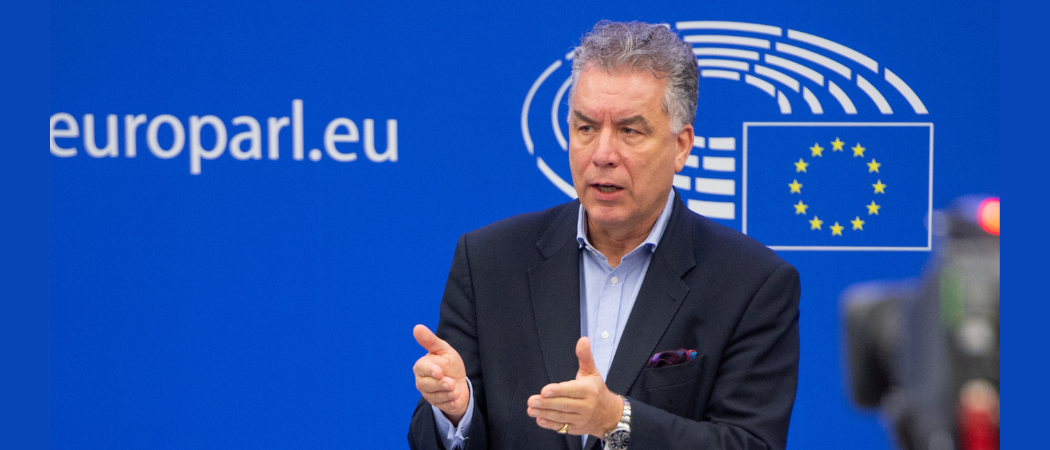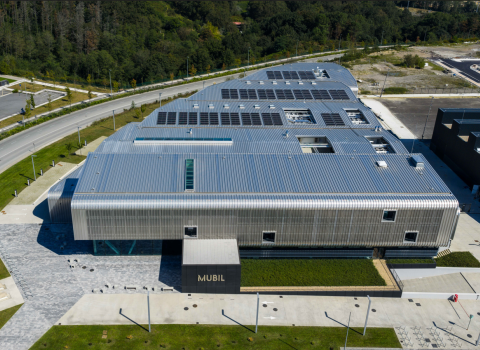The EU is hoping to reach an agreement on its plan to boost the European green tech industry in the coming weeks, as negotiations between the Parliament and Council continue

Christian Ehler MEP, rapporteur on the Net-Zero Industry Act. Photo: Michel Christen / European Union
The European Parliament is gearing up for the second round of negotiations on the EU’s plan to support domestic manufacturing of green technologies, with the next rounds of negotiations scheduled for 22 January and 6 February.
The talks on the Net Zero Industry Act began in December after the Council adopted its position, and progress has already been made towards an agreement at a technical level.
“I’m relatively sure we’re going to achieve an agreement with the Council,” Parliament’s rapporteur, Christian Ehler MEP, told the industry committee ITRE on Monday as he reported back from the recent technical meetings.
“I think there’s a willingness of the Belgian presidency to get an agreement,” he said. In contrast the Strategic Technologies for European Platform, is being held up by the member states’ reluctance to hand over extra funding, Ehler noted.
The proposed legislation sets the target of manufacturing 40% of the EU’s strategic net-zero technologies in Europe by 2030, by promoting investment and accelerating production, for example through quicker permitting for renewable energy projects.
It is central to the industrial pillar of the European Green Deal, and is in large part a response to the US Inflation Reduction Act, which provides generous subsidies for clean energy projects that have induced some companies to relocate to the US.
The EU Parliament and Council have already reached “something like an agreement” on the Parliament’s proposal to allow member states to designate geographical areas as ‘net zero industry valleys’, in order to create clusters and further streamline administrative procedures, Ehler said. The valleys did not feature in the Commission’s initial proposal.
The Parliament and Council also agree nuclear energy and carbon capture and storage should be included in the list of technologies benefiting from the measures, despite criticism from environmentalists.
However, the overall scope of the list of technologies is likely to be the subject of debate, said Ciarán Humphreys, research fellow at the Institute for Climate Economics think tank.
Humphreys also expects provisions requiring authorities to factor sustainability and resilience criteria into public procurement and renewable energy auctions to be a stumbling block, as they will place limits on how member states take decisions.
“Parliament’s position is to make [the criteria] stronger; the Council’s is basically to weaken them to the point they don’t even matter,” he said.
The issue is further complicated by disagreements between member states. France is among the countries supporting the initiative. “On the other hand, there are countries like Germany, which is very dependent on renewable auctions for its own decarbonisation, and is worried this criteria will make those auctions more difficult or expensive,” said Humphreys.
The Council will be represented during negotiations by Pierre Cartuyvels, of the Belgian Permanent Representation to the EU. The commissioner for Internal Market, Thierry Breton, is also expected to attend the trilogues.
If an agreement can be reached in February, that would allow it to be adopted ahead of this summer’s European elections.
Marc Lemaître, head of the European Commission’s research directorate general, recently admitted Europe was too slow in coming up with a serious industrial plan to accompany its emission reduction objectives.
As a result, the continent has become reliant on technologies such as solar panels and electric car batteries which are predominantly manufactured in China. The Commission is hoping the Net Zero Industry Act will help Europe to avoid this mistake in other technologies needed to reach carbon neutrality.





 A unique international forum for public research organisations and companies to connect their external engagement with strategic interests around their R&D system.
A unique international forum for public research organisations and companies to connect their external engagement with strategic interests around their R&D system.